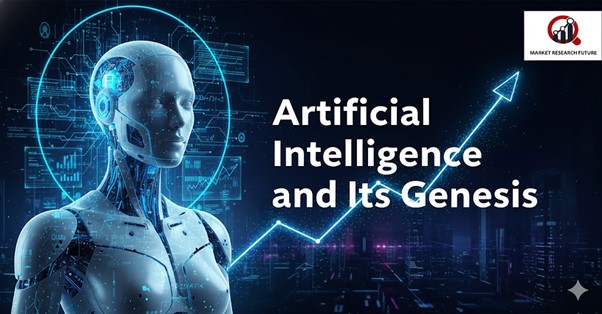Artificial Intelligence (AI) and Its Genesis

The size of the worldwide artificial intelligence market was valued at USD 244.22 billion in 2025, which is expected to reach a whopping USD 1.01 trillion by 2031. The growth of the ecosystem is likely to occur at a massive CAGR of 26.6% through the forecast period.
The term artificial intelligence was coined at a conference at Dartmouth College in 1956. But the genesis of the concept can be traced back to the attempts of classical philosophers to define the system of human cognitive ability. AI has become one of the significant technological advancements of the 21st century.
The constant growth and development in industries, including healthcare, finance, manufacturing, and retail, have brought AI to the centre of focus. As a result of the galloping growth and acceptance of AI by tech giants, such as Google LLC, Apple Inc., Facebook, and Microsoft, numerous AI software are currently in vogue.
AI Software- Definition and Types
A computer program to learn and imitate human behavior in the form of data patterns leads to the utilization of AI Software. Machine Learning, Virtual Assistant, and Speech and Voice Recognition are some of the features of AI.
Types of AI Software
Artificial Intelligence Platforms: The in-built algorithms present on these platforms enable users to create and develop an application from the base.
Chatbots: These give an impression of a human in a conversation with the user.
Deep Learning Software: It facilitates face recognition and image recognition.
Machine Learning Software: It enables the computer to learn via data.
Leading (AI)Artificial Intelligence Software
Deep Vision
Being the perfect software solution for business intelligence, safety, and security, Deep Vision has incorporated the Facial Demographics Model for deciphering the variation in demographics of a specific area.
Widely used for facial recognition, the software bridges the communication between brands, advertisers, and the target audience for the products. The facial demographics are useful in the analysis of an individual’s age and gender. It also harbors the ability to detect the user’s location.
Google Cloud Machine Learning Engine
The inception of a new business and the growth of an existing one can be led with Google AI Technology. The Google Cloud Machine Learning Engine is efficient for training and analysis of one’s business model.
The software enables users to monitor predictions of their business models. Compute Engine, Cloud SDK, and Cloud Storage are part of this software.
Azure Machine Learning Studio
The software, an advanced tool for users to shift from object to interface, allows one to build AI applications on the cloud. Interactive programming software is created for business intelligence systems.
Data collected from various sources allows the user to make an efficient predictive analysis. Creative tools offered by Azure Machine Learning Studio enable users to prepare data by writing R scripts.
IBM Watson
Named after the founder of IBM- Thomas J Watson, the software uses a powerful technique that incorporates cognitive computing through the combination of machine learning, reasoning, natural language processing, AI, and others.
Catalyzing business processes, this software is made with a processing rate of over 80 teraflops, which is twice a human’s ability to answer queries. With an in-depth understanding of industries and businesses, IBM Watson is appropriate for healthcare, finance, education, and transportation.
TensorFlow
Software designed by the research team of Google’s AI engineers, TensorFlow, facilitates deep learning and machine learning. It is a source of an advanced solution to computation and numerical analysis.
It features natural language processing, image recognition, chatbot, decision-making, machine learning, workflow automation, multi-language, virtual assistant, and speech recognition.
Regional Analysis
With the proliferating technological framework and being the epicentre of the artificial intelligence, the USA is expected to lead the global artificial intelligence market. North America, along with this, is likely to dominate the competitive space through the forecast period.
Emergence of local technology and rising investments in developing artificial intelligence have helped countries like India and China to construct a strong reputation within the global AI market. The Asia-Pacific region, therefore, is rapidly evolving.
Europe follows these regions, thanks to the growing government initiatives to upgrade and acquire cutting-edge technology within the European countries.

Leave a Comment